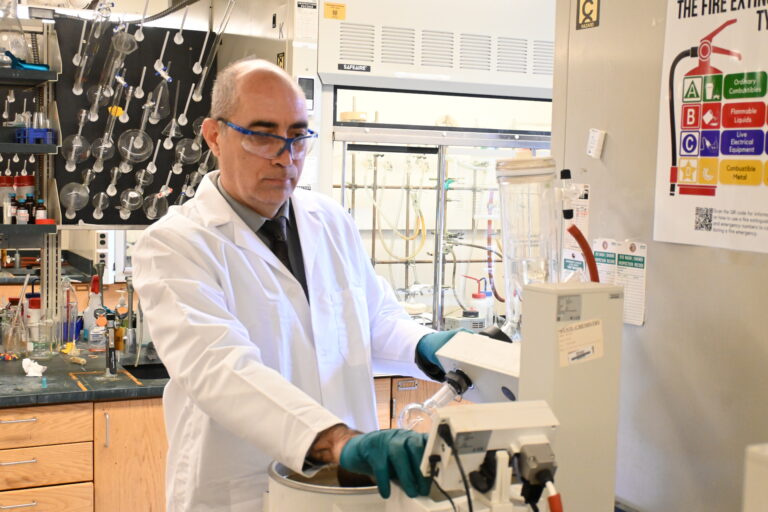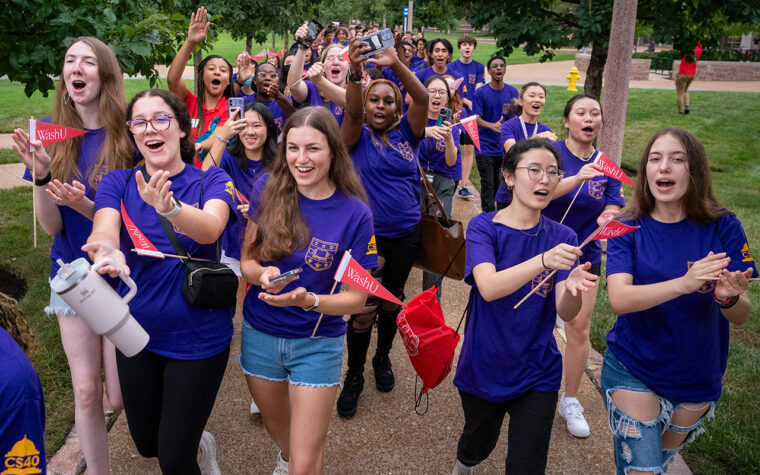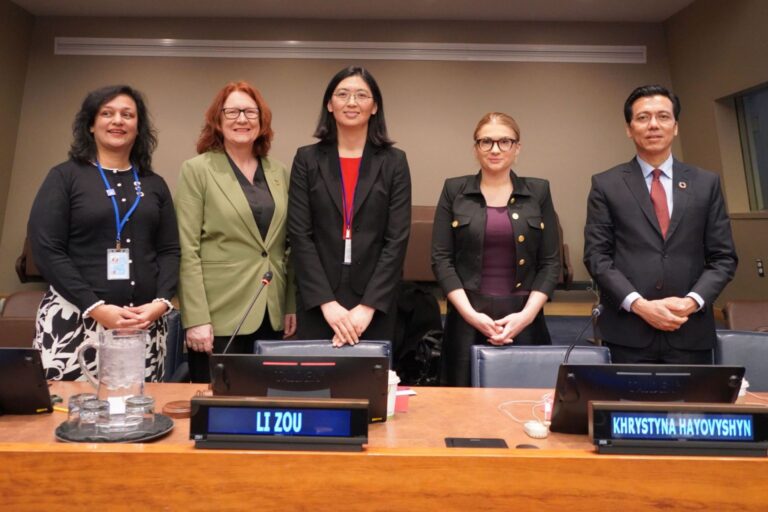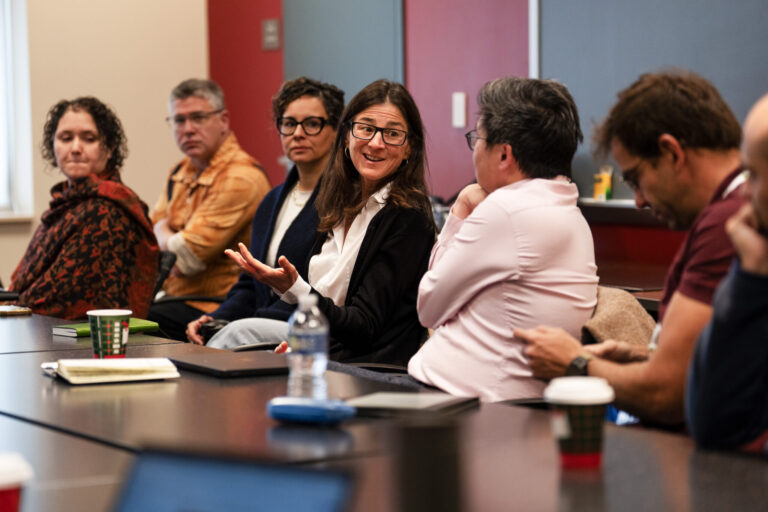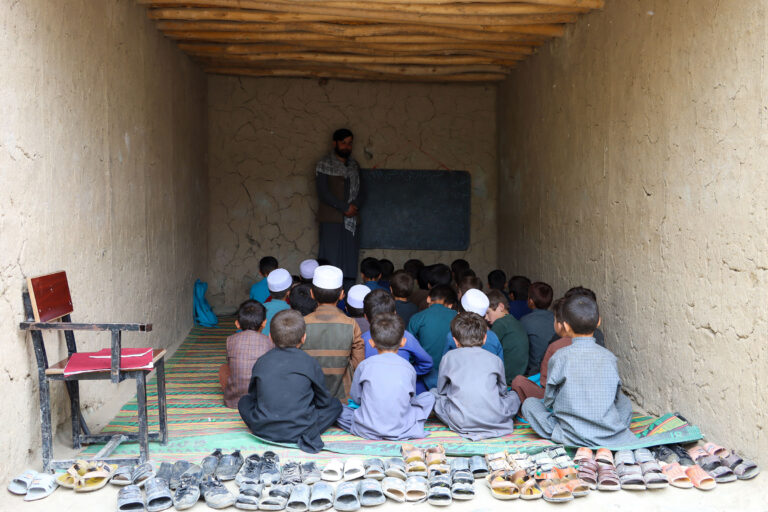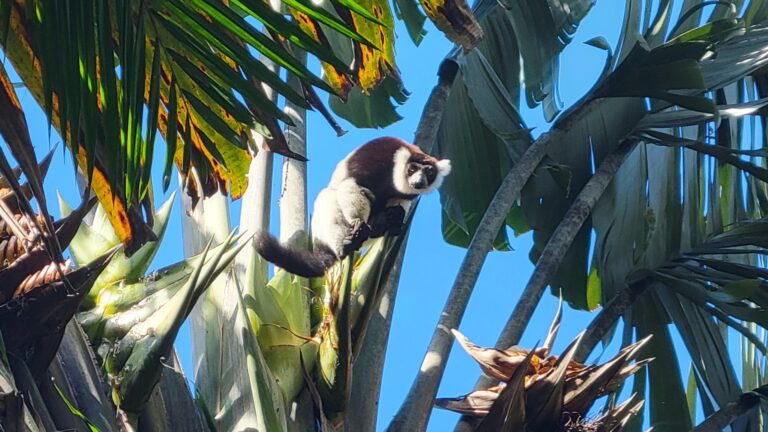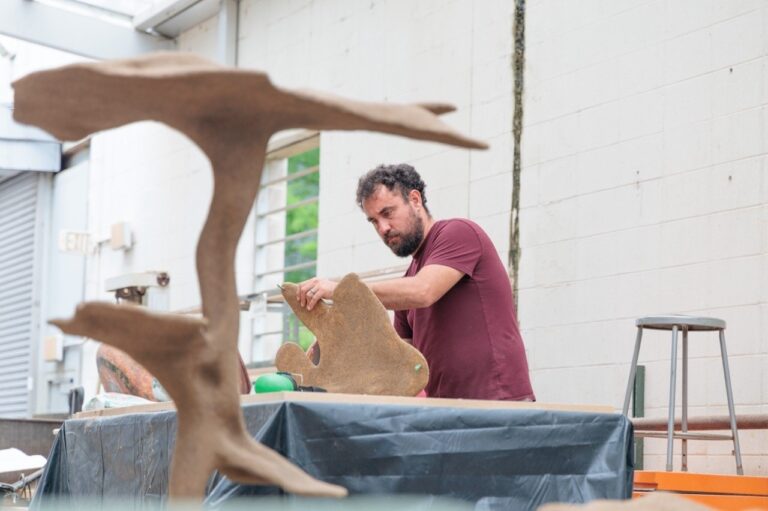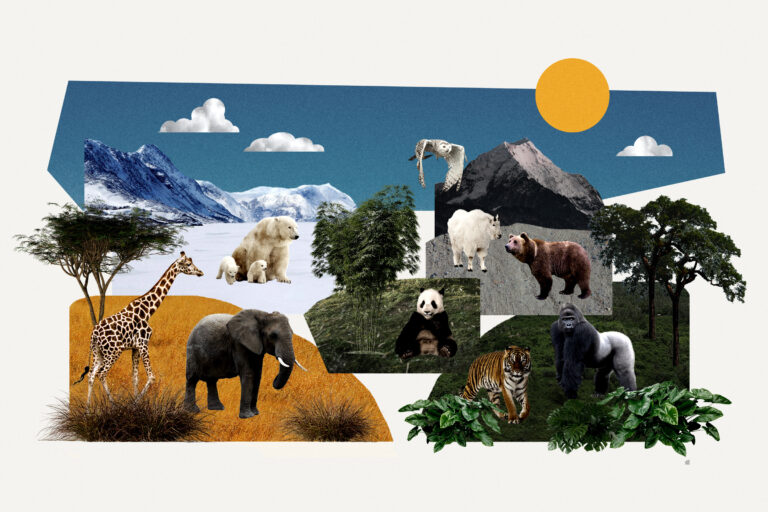From UNEC to WashU
Dr. Ali Khalilov is a Fulbright Visiting Scholar in the Chemistry Department at WashU, where he is part of Prof. Birman’s research group. His current project focuses on designing new self-complementary hydrogen-bonded arrays, exploring their potential as self-healing smart materials.
WashU recognized for its support of global research, international students
In recognition of its work to address complex global challenges and support its international students, faculty and scholars, Washington University in St. Louis has received a 2026 Paul Simon Award for Campus Internationalization from NAFSA: Association of International Educators.
Zou moderates opening panel at high-level UN meeting
Li Zou, International Director at Center for Social Development (CSD), moderated the opening panel of the Civil Society Forum at the 64th session of the United Nations Commission for Social Development on February 6, 2026.
WashU’s FARM hosts visit by international food and ag experts
Twenty food and agriculture experts from seven countries visited Washington University in St. Louis on Thursday, February 5, to learn about the School of Public Health’s Food and Agriculture Research Mission (FARM), one of the school’s six research networks.
School-based psychosocial program enhances children’s well-being amid crisis
More than four decades of near-continuous war in Afghanistan has left many people in the country impoverished and traumatized. For children to thrive in these circumstances and break the cycle of generational trauma, they need support — but mental health care is limited and stigmatized in Afghanistan, and inaccessible to the vast majority of Afghan children.
Human-wildlife interaction in Madagascar
Three WashU researchers studying human-wildlife interaction in the forests of Madagascar have approached their research in a unique way – one that recognizes that protecting wildlife requires protecting people.
Q&A with Artist Blas Isasi, 2024-25 Freund Fellow
Peruvian artist Blas Isasi was the 2024-25 Henry L. and Natalie E. Freund Teaching Fellow at the WashU Sam Fox School.
‘Looking Back Toward the Future’
Celebrated editor, publisher and art collector Larry Warsh recently gifted 56 works of Chinese photography to the Kemper Art Museum at Washington University in St. Louis.
WashU to support UN’s ‘Life on Land’ sustainable development goal
Washington University in St. Louis has been appointed to a United Nations (U.N.) group dedicated to protecting life on land.
A tale of three cities: Book explores gentrification in global context
Using comparative urbanism as their lens, the authors examine the socio-economic and political ramifications of neighborhood gentrification in three prominent global cities—New York, London, and Seoul, South Korea — since the 2007-09 Great Recession.
